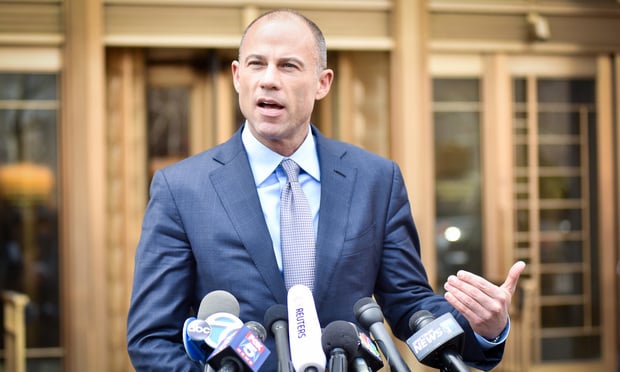A federal judge has removed embattled Michael Avenatti from a class action in which he won a $454 million verdict, citing her “considerable doubt” that he could fairly represent the class.
Thursday’s ruling by U.S. District Judge Dolly Gee of the Central District of California comes a day after Avenatti faced new criminal charges that he stole nearly $300,000 from his former client, Stephanie Clifford, the adult film star performing under the name Stormy Daniels who sued President Donald Trump alleging she was paid thousands of dollars to keep quiet about their sexual affair. Avenatti already faces multiple charges of tax fraud, bank fraud and extortion in both California and New York.
This content has been archived. It is available through our partners, LexisNexis® and Bloomberg Law.
To view this content, please continue to their sites.
Not a Lexis Subscriber?
Subscribe Now
Not a Bloomberg Law Subscriber?
Subscribe Now
LexisNexis® and Bloomberg Law are third party online distributors of the broad collection of current and archived versions of ALM's legal news publications. LexisNexis® and Bloomberg Law customers are able to access and use ALM's content, including content from the National Law Journal, The American Lawyer, Legaltech News, The New York Law Journal, and Corporate Counsel, as well as other sources of legal information.
For questions call 1-877-256-2472 or contact us at [email protected]

 Michael Avenatti. Photo: David Handschuh/ALM
Michael Avenatti. Photo: David Handschuh/ALM








